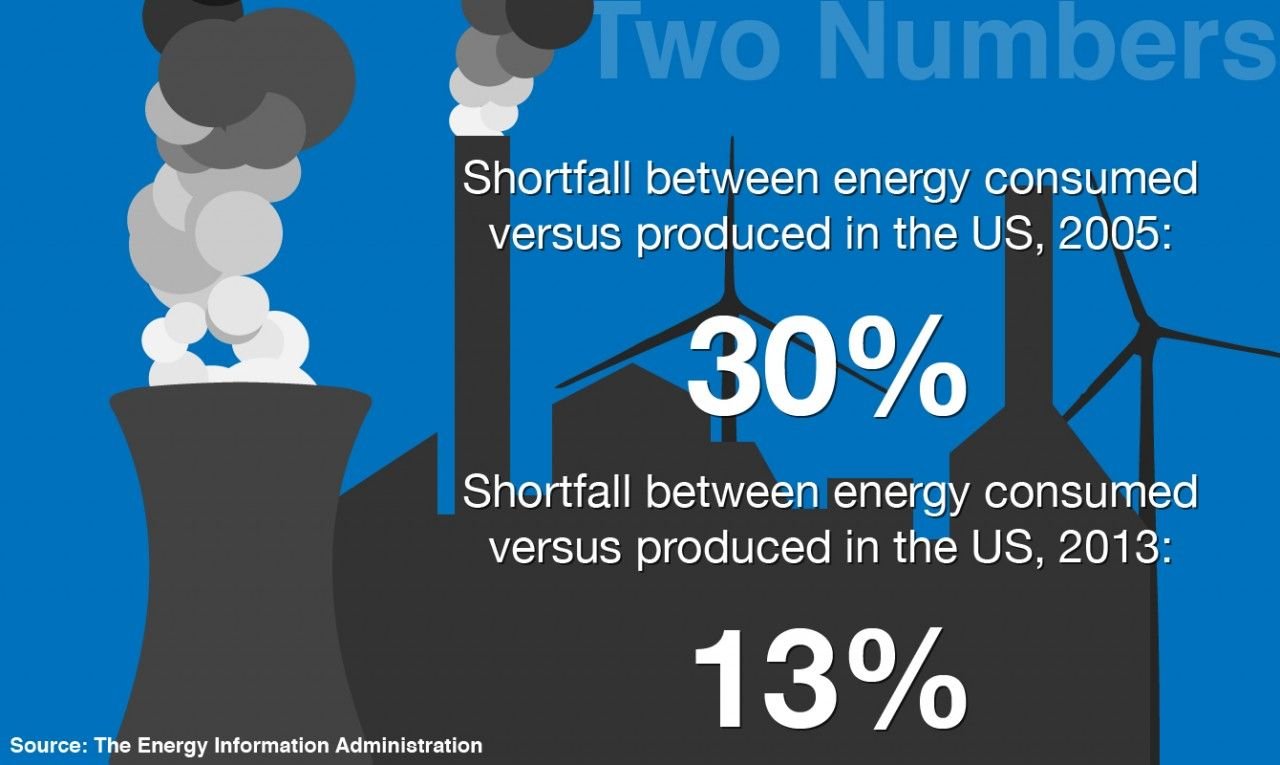
Once a distant, long-term goal, energy self-sufficiency is fast approaching reality in the United States. In just eight years, the U.S. has more than halved its dependence on energy imports, according to figures from the Energy Information Administration, the main government agency responsible for collecting and analyzing data on all types of energy including crude oil, natural gas, coal, electricity and renewable energy.
It's not just fracking that's changing our energy equation either. Global forces are helping too. It's no coincidence, for instance, that the acceleration in energy production coincided with a sharp spike in the price of crude oil. Oil prices began to rise around 2005 and since 2011 have averaged $110 a barrel, encouraging additional oil production and at the same time, more natural gas production as an alternative to crude. In terms of crude oil production alone, the U.S. reached a notable milestone last year, producing more oil than it imported for the first time in almost 20 years.
While energy production is growing strongly, energy consumption in the U.S. is actually falling, although slowly. That's in part due to the recession and the high price of crude oil but it also reflects greater fuel efficiency of new vehicles. That's a good thing since U.S. consumption of oil outstrips all other nations by a wide margin. According to the EIA, the U.S. consumed 18.56 billion barrels of oil a day in 2012, while the next biggest oil consumer, China, consumed 10.28 billion and the third biggest, Japan, consumed 4.72 billion barrels a day.
While the figures for 2013 are still projections, the production gap has been dropping steadily. The EIA projects the trend to continue for another 20 years. When today's toddlers graduate from college, concerns about energy imports from potentially hostile countries might be consigned to the history books.

























